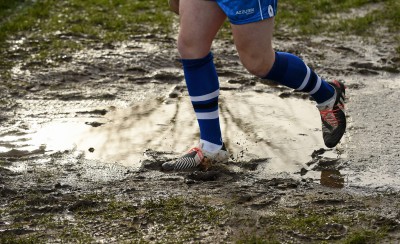ALL clubs should currently be well into the dreaded pre-season. Traditionally this has been the most despised part of the year for players for three reasons.
One: they have spent the previous three weeks eating selection boxes for breakfast and washing it down with Coke and Pringles. Two: January means cold weather and gutters. Three: There usually isn’t a ball in sight and Mo Farah would struggle to keep up with the long-distance running.
The older heads will usually come up with a niggling injury that magically disappears when the league starts, which I call pre-seasonitus.
Several clubs will have new management with new ideas and crucially those who don’t, must endeavour to mix it up. Psychologically if players didn’t enjoy pre-season last year and they know it will be the same this year then morale and motivation will be on the floor before it has even begun.
Gaelic is becoming increasingly more scientific in its approach to conditioning and this must filter through to pre-season. I am a great believer in train as you play and traditional methods of constant laps and long distance running have had their day.
If we cast our mind back to the dreaded lock downs it’s fair to say that most teams became experts at 5k running. The rationale being that this could be done on an individual basis and was a means of keeping a base fitness.
Furthermore, it could be recorded and tracked and overall progress was monitored.
A base fitness is important as a certain standard of conditioning is required before the speed agility drills commence.
However, Gaelic football is not played at a 5k pace; it is a series of high intensity bursts of pace coupled with intermittent jogging and sprint speed runs.
Pre-season must reflect this and must be made interesting for the players. Again, referencing the science, peak fitness should be targeted for championship football so speed agility work in pre-season should not be pre-eminent. Base fitness can be achieved in a manner that is more reflective of the modern game and in a way that players find enjoyable through variety.
A mix of speed endurance drills that focus on recovery relevant to Gaelic games is vital. For example, a 1k run with a three-minute recovery is not how the game is played. A more reflective scenario would be shorter runs with shorter recovery.
Coaches can also keep fitness levels up through the use of other sports, such as boxing, rugby, basketball and soccer. Players will be exposed to demanding fitness activities that have similar recovery times to Gaelic. It also adds variety that ensures players are kept interested.
Often teams will focus on fitness work for the first six to eight weeks of the year and then introduce ball work. This, I feel, should be a thing of the past. You can be flying fit come the start of the league but if your ball skills have been neglected then it is pointless.
Ball work should be introduced at an early stage and be incorporated into fitness drills. This ensures that when the season begins your team will not only be fit but they will have a head start in terms of skill also.
Crucially, and this shows the demands of the modern game, a strength and conditioning program must be completed in parallel.
Gym work is essential as it is done in a phased basis. For example, if you don’t do the basics early on then you will not be able to progress to the dynamic strength drills as the year progresses.
Gym work must also reflect the modern game. There’s little point in benching like Arnie Schwarzenegger if you can’t apply it to actual game-time scenarios.
The modern game is about explosive strength and power. This is an area that coaches must be led by the professionals in the construction of efficient strength programs. Players can actually hurt themselves through improper technique making strength programs not only pointless but counterproductive.
Ultimately, pre-season is the foundation upon which a team builds their entire year on. You can’t win a championship in pre-season but if you don’t do it right it can cost you one later in the year.
It’s the same as Manchester United attacking the opposition goal these days, you only get one shot at it.
Receive quality journalism wherever you are, on any device. Keep up to date from the comfort of your own home with a digital subscription.
Any time | Any place | Anywhere












